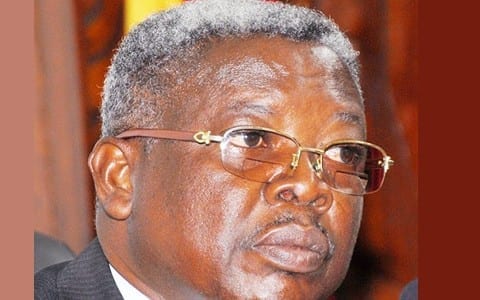Published
4 years agoon
By
Joe Pee
Supreme Court Judge and former Sole Judgment Debt Commissioner, Justice Yaw Appau, says the euphoria which heralded the establishment of the Office of the Special Prosecutor was misplaced since the office has proved to be ineffective in the fight against corruption.
Justice Appau was speaking as one of the panelists at the 8th edition of the Leadership Dialogue Series organized by the Centre for Social Justice last week.
He said that the establishment of the office and the appointment of Mr. Martin Kaizer Alamisi Amidu as the first Special Prosecutor was widely welcomed.
“Many Ghanaians thought an antidote to public corruption, particularly political corruption, had been finally found. The expectation of many Ghanaians was that political appointees and public officials who had been named or accused of corrupt acts during our political party campaigns and in the media would be prosecuted and punished if found culpable. But that was far from right”.
He explained that the Attorney-General doubles as the Minister of Justice and is therefore unable or unwilling to prosecute his colleague Ministers or other government appointees who engage in dubious and corrupt acts. He further argued that since the Special Prosecutor works under the supervision of the Attorney General, he or she would not have the freedom to prosecute Government appointees without the approval of the Attorney General.
Justice Appau went on to explain that Act 959 which establishes the office of the Special Prosecutor, gives him a limited role in the investigation and prosecution of criminal cases. He said that the law provides that the Special Prosecutor investigates and prosecutes specific cases of alleged or suspected corruption-related offences.
“The question is, who decides on the specific cases to be investigated and prosecuted?” he asked.
According to Justice Appau for the office to be effective, it must be insulated from the influence of the government of the day, as is the case with the Electoral Commissioner. “Whilst the electoral commissioner is somehow totally independent, the special prosecutor is not. In fact, the special prosecutor has no independence whatsoever. He is subject to the authority of the Attorney-General” he concluded.
Also speaking at the event were Mrs. Mary Awelana Addah, Programmes Manager at the Ghana Integrity Initiative and Mannaseh Azure Awuni, Investigative Journalist and Editor in Chief of the Fourth Estate, Media Foundation for West Africa.
According to Mrs. Addah, Ghana has failed to make significant progress in the fight against corruption over the years.
“The passage of legislations like the Whistle Blower Act, Declaration of Assets and Disqualification, Act 1998 (Act 550), Financial Administration Act, 2003 (Act 654), the Public Procurement Act, 2003 (Act 663) and the Internal Audit Agency Act, 2003 (Act 658) should have placed Ghana as a shining example of nations with higher integrity, unfortunately, the story today is the opposite” she said.


Video: Nana Tonardo Sprays Cash on Nana Agradaa During Church Visit


Juliet Ibrahim Champions Gender Equality with HER STEAM Initiative


Video: Funny Face Flees After Learning Lady Shares Name with His Ex


Video: Lisa Quama Revives Ghana’s Independence Spirit with Stirring Nkrumah Reenactment


Tiwa Savage Eyes Mogul Status with Bold Plans for Music and Film Industry Expansion


The 28th February Crossroads Shooting: The Spark That Ignited Ghana’s Independence


Mahama Vows to Usher in Era of Fiscal Discipline and National Renewal


Elon Musk changes his name to Kekius Maximus on X


Mahama Calls for Unity Among Political Parties to Drive Ghana’s Renaissance

























